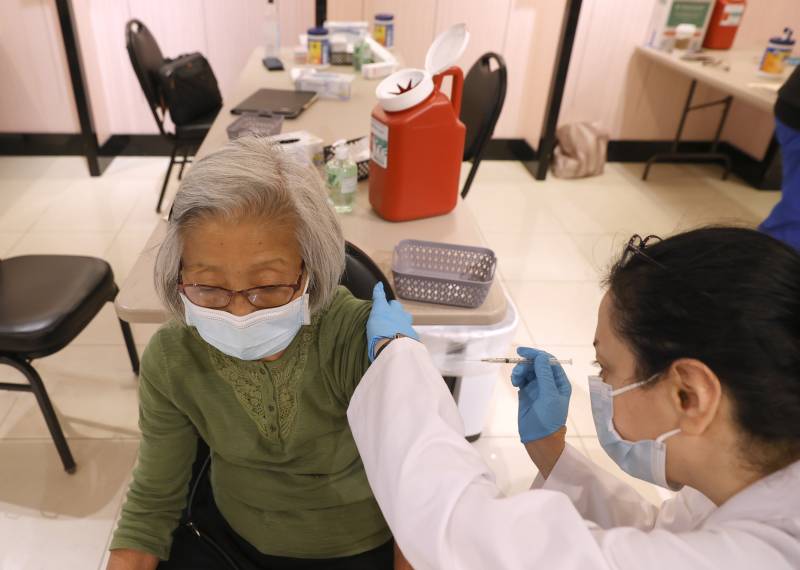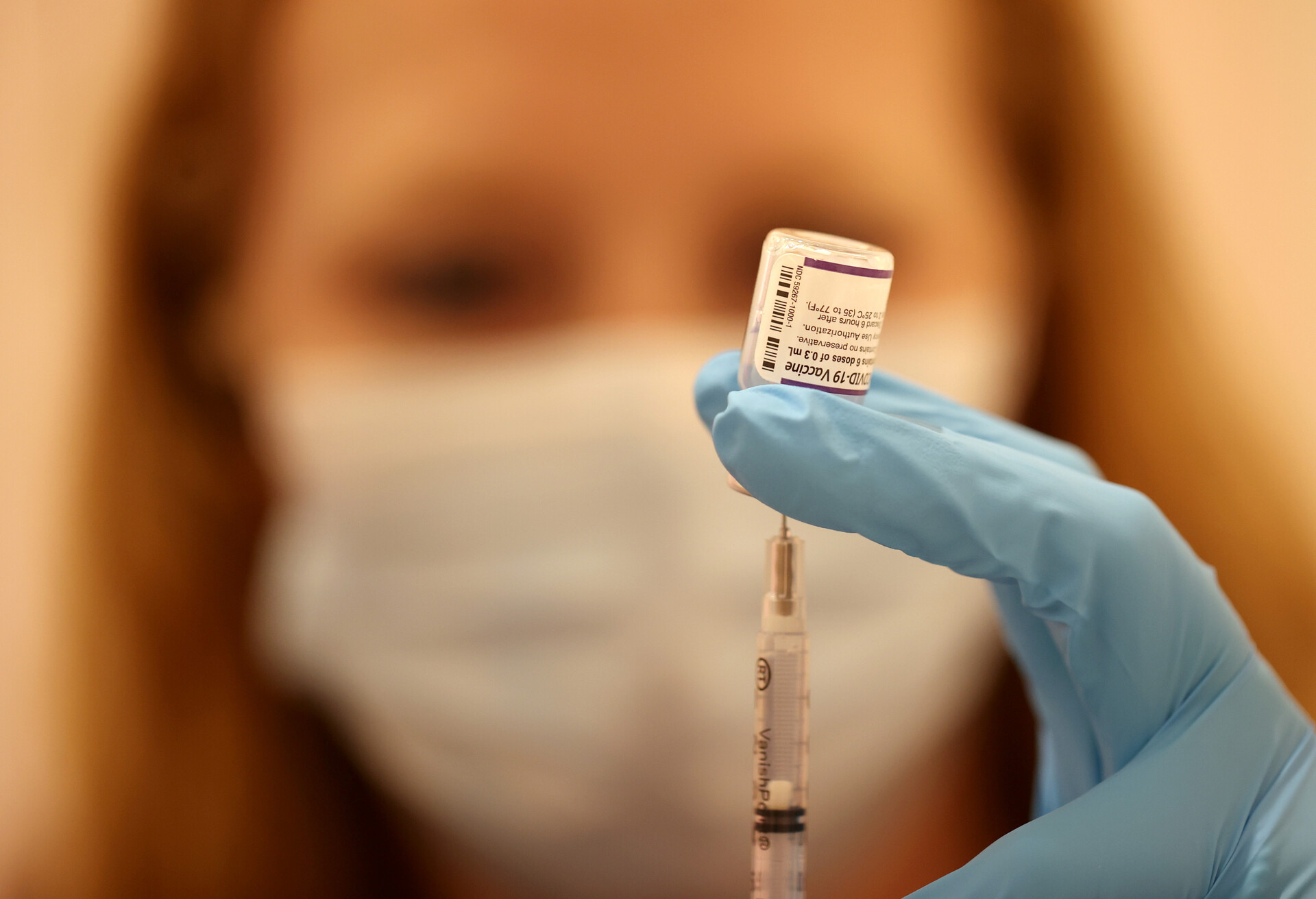Although little is so far known about the new variant, which researchers in South Africa first identified last week, the World Health Organization on Monday cautioned that "the overall global risk ... is assessed as very high." That's due in part to the variant's "unprecedented" number of mutations, the agency said.
No cases of the omicron variant have yet been detected in the U.S., but most experts agree that it is probably already here — a consensus that prompted President Biden on Monday to announce that "this variant is a cause for concern — not a cause for panic."
"I think it's quite possible, even likely, that there are small numbers of individuals that have already been infected with this variant in the United States and in the Bay Area," Dr. Benjamin Pinsky, who heads the Clinical Virology Laboratory at Stanford, told KQED on Monday.
Dr. Peter Chin-Hong, UCSF professor of medicine, explained to KQED that additional studies are necessary to determine whether omicron — named after the 15th letter of the Greek alphabet — is more transmissible than the delta variant, whether it will cause more serious symptoms, and how it will affect people who are already vaccinated.
"We thought delta was the only game in town for a long time," he said. "This is not the end of the story, and we have to be on guard and encourage our communities to be vaccinated, because at the end of the day, that's what's going to kick us out of this current quagmire."
Speaking with Alexis Madrigal on KQED's Forum on Monday, Kirsten Bibbins-Domingo, the chair of UCSF's Department of Epidemiology and Biostatistics, said it may take weeks before experts know more about the omicron strain.
"Unfortunately, in this pandemic, we need varying strands of science to tell us not just what they do in the laboratory, but what we see in the populations," Bibbins-Domingo said.


